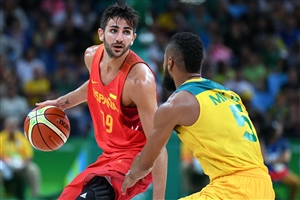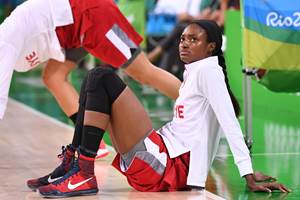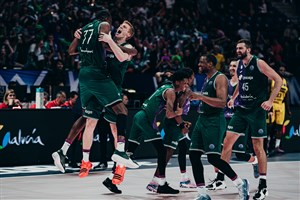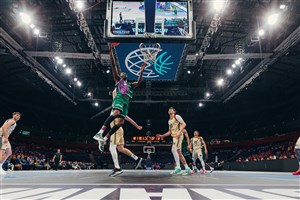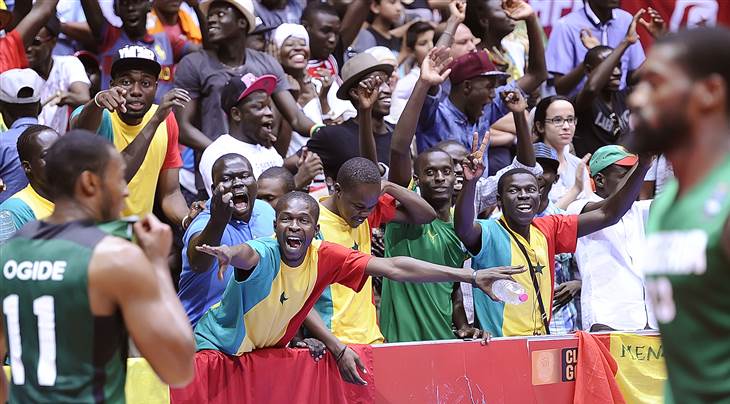
Who should receive wild cards for FIBA AfroBasket 2017?
SHEFFIELD (Julio Chitunda's African Message) - Following last month's qualifiers for the 16-team FIBA AfroBasket 2017, three places remain to be determined.
While one place will be decided via a play-off between South Africa and Zimbabwe, the other two will be determined by way of FIBA Africa allocating wild cards.
🇦🇴83-45🇿🇲
— Basketball SA (@BasketBall_RSA) March 30, 2017
South Africa Now Will face Zimbabwe in Johannesburg#BasketballSA
South Africa and Zimbabwe, teams that finished runners-up in their respective regional qualifiers, will do battle for the last qualifying place to this summer's event in Congo-Brazzaville in a two-game series in Johannesburg this coming weekend (April 8-9).
I suppose a number of teams from across the continent are stating their case to be part of FIBA Africa's biggest showpiece in August (19-30). In the meantime, fans, players, officials and sponsors are debating who will and should be awarded these wild cards for the continent's flagship event and why.
7 countries (RSA, ALG, CAF, CGO, GUI, RWA, SEN) have bid for 3 #AfroBasket2015 wild cards: http://t.co/hEKTRai6Mt pic.twitter.com/IMnGhSV93Q
— FIBA (@FIBA) March 26, 2015
Let me put this topic into perspective. Last month, 28 national teams took part in qualifiers and 11 of them secured automatic qualification. And, as far as I am aware, Cape Verde, Algeria, Rwanda and Guinea - who all made their interest in the wild cards public - are looking forward to receiving a call from FIBA Africa over the next few days.
Keep in mind that, by virtue of winning the FIBA AfroBasket 2015 and as hosts of the tournament, Nigeria and the Republic of Congo respectively haven’t taken part in the qualifiers.Among the 13 teams already assured of featuring at FIBA AfroBasket 2017, only three of them (hosts Congo-Brazzaville, Uganda and DR Congo) sit below the top 11 in the Nike FIBA Africa Ranking.
If the key criteria for the allocation of the wild cards are competitiveness of the teams and popularity of the sport in those countries, there will be unfinished discussions because those that failed to qualify directly for Congo-Brazzaville have strong arguments in terms of popularity and making the FIBA AfroBasket more attractive.
But if the aim is to diversify how the wild cards are attributed, there will be some surprises. That is because, over the last four editions of FIBA AfroBasket, nine wild cards were offered to seven national teams.
Algeria, the Central African Republic (CAF) and Senegal were the recipients of the three tickets for FIBA AfroBasket 2015. Two years earlier, Rwanda and Mali completed the field for the FIBA AfroBasket in Abidjan after failing to qualify directly. Back in 2011, Egypt and South Africa headed to Madagascar after accepting the two invitations. Senegal and South Africa completed the 16-team FIBA AfroBasket 2009 following a wild card allocation process.
Looking at the Nike FIBA Africa Ranking, four top-16 teams - CAF, who hosted the Zone 4 qualifier, Cape Verde, Rwanda and Gabon - failed to achieve direct qualification. As I mentioned earlier, CAF and Rwanda have received wild cards before. That raises a question as to whether it will now be Gabon and Cape Verde's turn.
From a competitive standpoint and based on recent performances, I would select Cape Verde and Algeria.
However, to the surprise of most, including myself, Guinea - a team that ranks below the top-24 in Africa- made tremendous noise in Zone 2 qualifiers. They beat Senegal and Mali in the first leg of the qualifier before denying Cape Verde. And that's the reason, Guinean media outlets are already celebrating a wild card invitation.
Speaking to FIBA.com, Algeria's Medhi Cheriet attributed the team's failure in the qualifier to reasons that were out of the players' control and insisted they should be considered.
Whoever is on the receiving end of the two wild cards, this is set to be one of the most competitive editions of the FIBA AfroBasket.
Julio Chitunda
FIBA
FIBA's columnists write on a wide range of topics relating to basketball that are of interest to them. The opinions they express are their own and in no way reflect those of FIBA.
FIBA takes no responsibility and gives no guarantees, warranties or representations, implied or otherwise, for the content or accuracy of the content and opinion expressed in the above article.

